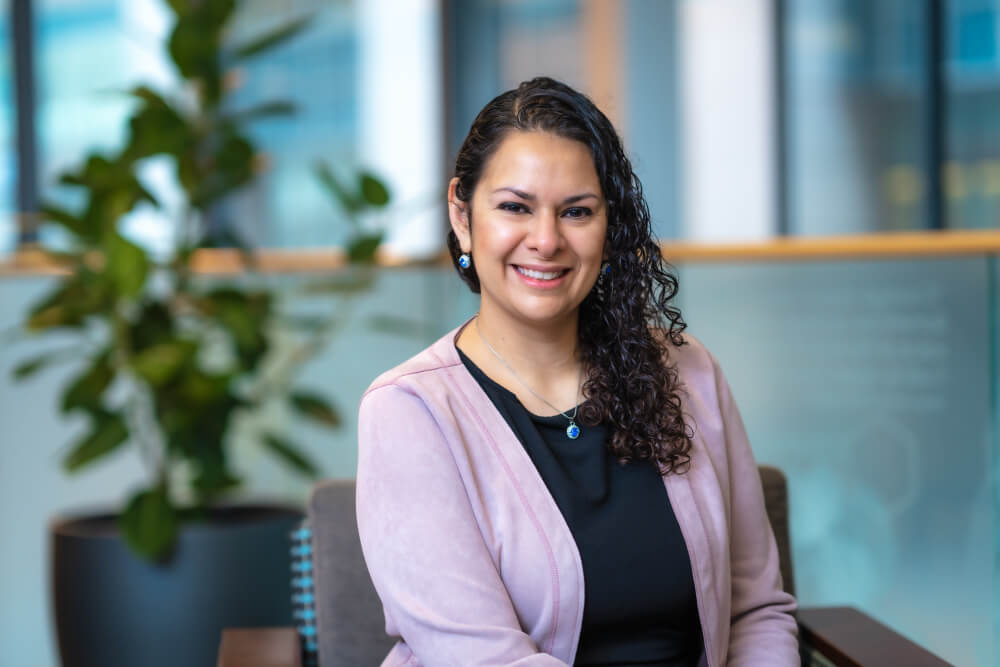Running isn’t a required skill for a thoracic oncologist, but Narjust Florez, MD, occasionally calls on the ability. Her patients — all with lung cancer, some young and pregnant — might delay a specific treatment to safely carry their pregnancies to term. When they deliver, Florez picks up the pace to arrive at their bedside, medicine in hand.
“I’m very attached to my patients,” says Florez, associate director of the Dana-Farber Cancer Care Equity Program and assistant professor of medicine at Harvard Medical School.
Lung cancer is on the rise in young people, particularly those who are assigned female at birth (AFAB). As a result, there is an increase in the number of people who are pregnant and have lung cancer. Florez has become known for her care of pregnant lung cancer patients and has begun a quest to determine the best approach to their treatment.

Case by case
Three years ago, Florez received her first call from a colleague asking for help with a young pregnant patient with lung cancer. As she looked for clues in case studies, she found only 66 documented cases. Many were outdated and some based clinical decisions on guidelines for breast cancer. “Everyone was doing what they could,” Florez recalls. “But we need evidence. We need to know what works for patients.”
Florez responded to this uncertainty by creating the International Pregnancy and Lung Cancer Registry, the first database to collect global data about pregnancy and lung cancer. The database is approved by an Institutional Review Board and is certified to be secure and fully anonymized. Doctors can register a case, and include diagnostic information, genetic data, treatment decisions, and outcomes for both patient and fetus.
The registry follows the approach of Dana-Farber’s innovative Young and Strong Program for Young Adults with Breast Cancer, which cares for young people with breast cancer whether they’re pregnant or not. Ann Partridge, MD, MPH, a breast oncologist at the Institute, and founder and director of the Young and Strong Program, is mentoring Florez, who will disseminate insights from the registry twice a year so providers worldwide can learn from the data.
Safer choices
Treatment for lung cancer can include chemotherapy, immunotherapy, targeted therapies, and surgery. While targeted therapies can work well for patients with certain lung cancer biomarkers, there currently isn’t evidence that these drugs are safe during pregnancy.
The chemotherapy drugs carboplatin and paclitaxel have been shown to be safe during the second and third trimester because they do not cross the placenta. These medicines might be an option for some patients during pregnancy. After delivery, patients can take an appropriate targeted therapy – even immediately after delivery if Florez can make it to their bedside that quickly.
Florez has worked with patients who have been treated with medicines that were not safe for the baby. She has also treated patients who were advised to end their pregnancies before treatment even though alternatives exist. She hopes guidelines will reduce the number of patients with traumatic experiences like these.
“We’re learning that the trauma of these decisions takes a toll long after the cancer has been treated,” Florez says.
The registry has been open for a few months and Florez has already collected 20 cases. She will present her first insights in September at the World Conference on Lung Cancer in San Diego, California.
